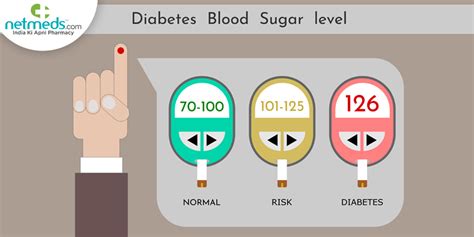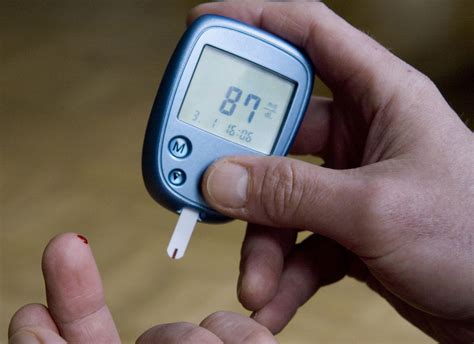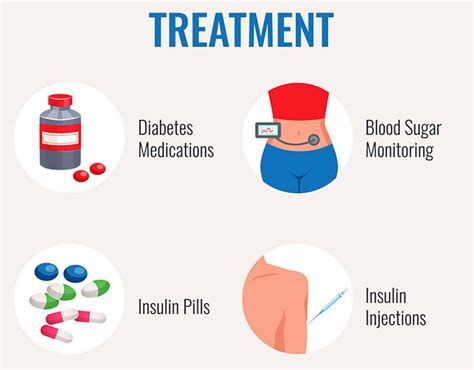Intro
Learn effective ways to manage blood sugar levels in diabetes, including glucose monitoring, diet control, and insulin therapy, to prevent complications and maintain a healthy lifestyle with diabetes management techniques.
Diabetes is a chronic health condition that affects millions of people worldwide, and managing blood sugar levels is crucial for individuals with this condition. Blood sugar levels, also known as blood glucose levels, refer to the amount of glucose present in the blood. When an individual has diabetes, their body either cannot produce enough insulin, a hormone that regulates blood sugar levels, or cannot effectively use the insulin it produces. As a result, blood sugar levels can fluctuate, leading to a range of health complications. In this article, we will delve into the importance of managing blood sugar levels in diabetes, the factors that affect blood sugar levels, and the strategies for maintaining healthy blood sugar levels.
For individuals with diabetes, managing blood sugar levels is essential to prevent long-term health complications, such as heart disease, kidney damage, and nerve damage. High blood sugar levels can also increase the risk of infections, slow wound healing, and cause vision problems. Furthermore, uncontrolled blood sugar levels can lead to a range of symptoms, including increased thirst and urination, fatigue, and blurred vision. By managing blood sugar levels, individuals with diabetes can reduce their risk of developing these complications and improve their overall quality of life.
The importance of managing blood sugar levels cannot be overstated, and it requires a comprehensive approach that involves lifestyle changes, medication, and regular monitoring. Individuals with diabetes need to work closely with their healthcare provider to develop a personalized plan for managing their blood sugar levels. This plan may involve setting target blood sugar levels, monitoring blood sugar levels regularly, and making adjustments to diet, exercise, and medication as needed. By taking a proactive approach to managing blood sugar levels, individuals with diabetes can take control of their condition and reduce their risk of long-term health complications.
Understanding Blood Sugar Levels

Factors That Affect Blood Sugar Levels
Several factors can affect blood sugar levels, including diet, physical activity, stress, and medication. Diet plays a significant role in managing blood sugar levels, as the type and amount of carbohydrates consumed can impact blood sugar levels. Foods that are high in simple carbohydrates, such as white bread and sugary snacks, can cause a rapid increase in blood sugar levels. On the other hand, foods that are high in fiber and protein, such as fruits, vegetables, and lean meats, can help regulate blood sugar levels. Physical activity also affects blood sugar levels, as regular exercise can improve insulin sensitivity and reduce blood sugar levels.Strategies For Managing Blood Sugar Levels

Lifestyle Changes For Managing Blood Sugar Levels
Lifestyle changes play a critical role in managing blood sugar levels, and individuals with diabetes can make several changes to improve their blood sugar control. One of the most effective lifestyle changes is to follow a healthy diet that is low in simple carbohydrates and high in fiber and protein. A healthy diet can help regulate blood sugar levels and improve insulin sensitivity. Regular physical activity is also essential for managing blood sugar levels, as exercise can improve insulin sensitivity and reduce blood sugar levels. Additionally, stress management techniques, such as meditation and yoga, can help reduce stress and improve blood sugar control.Monitoring Blood Sugar Levels

Interpreting Blood Sugar Results
Interpreting blood sugar results is essential for individuals with diabetes, as it can help them identify patterns and trends in their blood sugar levels and make adjustments to their treatment plan as needed. Blood sugar results can be interpreted in several ways, including by looking at the average blood sugar level over a period of time, such as a week or a month. This information can help individuals with diabetes identify whether their blood sugar levels are within their target range and make adjustments to their diet, exercise, or medication as needed.Treatment Options For Diabetes

Preventing Diabetes Complications
Preventing diabetes complications is essential for individuals with diabetes, as it can help reduce the risk of long-term health problems, such as heart disease, kidney damage, and nerve damage. One of the most effective ways to prevent diabetes complications is to manage blood sugar levels effectively, as high blood sugar levels can increase the risk of complications. Regular health check-ups are also essential, as they can help identify potential health problems early on and prevent them from becoming more serious. Additionally, individuals with diabetes can take several steps to reduce their risk of complications, such as quitting smoking, limiting alcohol consumption, and getting regular exercise.Living With Diabetes

Coping With Diabetes Emotionally
Coping with diabetes emotionally can be challenging, as the condition can have a significant impact on daily life and overall well-being. Individuals with diabetes may experience a range of emotions, including anxiety, depression, and frustration. However, there are several strategies that can help individuals with diabetes cope with their emotions, such as seeking support from friends and family, joining a support group, and practicing stress management techniques, such as meditation and yoga. Additionally, individuals with diabetes can benefit from seeking professional help, such as counseling or therapy, if they are struggling to cope with their emotions.Conclusion And Next Steps

We invite you to share your experiences and tips for managing blood sugar levels in the comments section below. Your feedback and insights can help others who are living with diabetes, and we appreciate your input. Additionally, we encourage you to share this article with others who may be interested in learning more about managing blood sugar levels and living with diabetes.
What are the symptoms of high blood sugar levels?
+High blood sugar levels can cause a range of symptoms, including increased thirst and urination, fatigue, blurred vision, and slow wound healing.
How often should I monitor my blood sugar levels?
+The frequency of blood sugar monitoring depends on the individual's specific needs and health status. Generally, individuals with diabetes should monitor their blood sugar levels at least 2-3 times per day, but this may vary depending on their treatment plan and healthcare provider's recommendations.
What are the benefits of regular physical activity for individuals with diabetes?
+Regular physical activity can help improve insulin sensitivity, reduce blood sugar levels, and improve overall health and well-being. It can also help reduce the risk of long-term health complications, such as heart disease and kidney damage.
